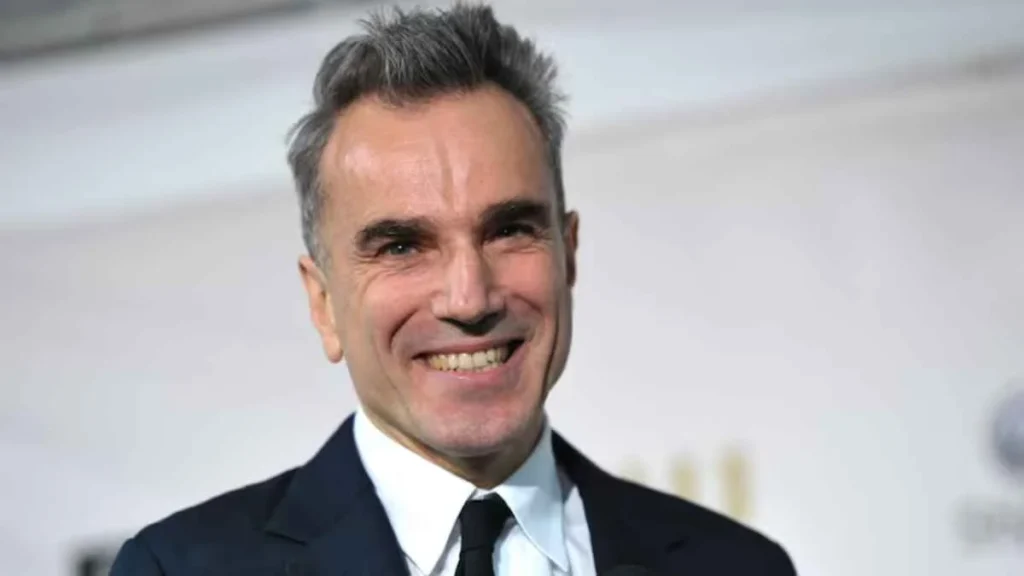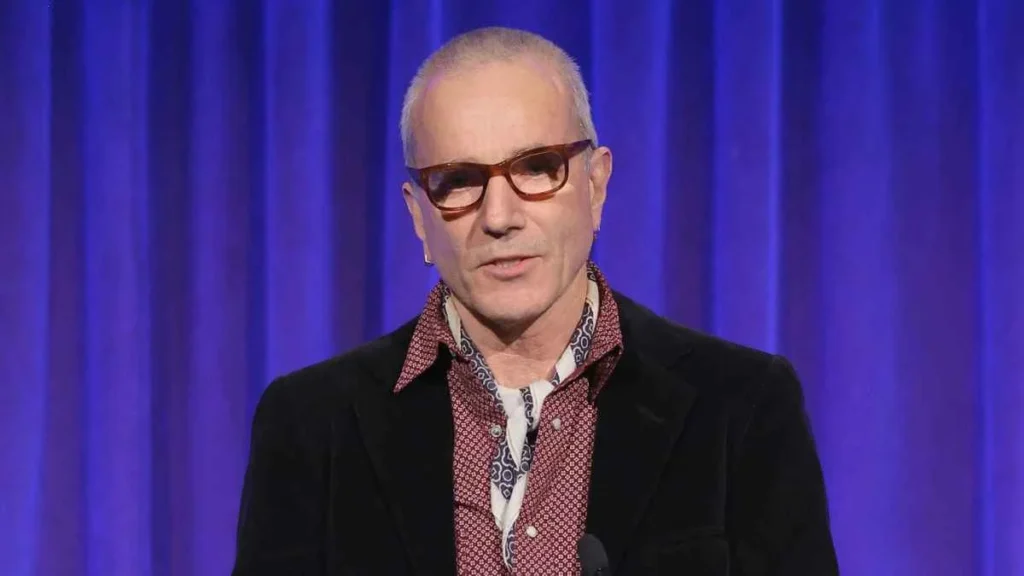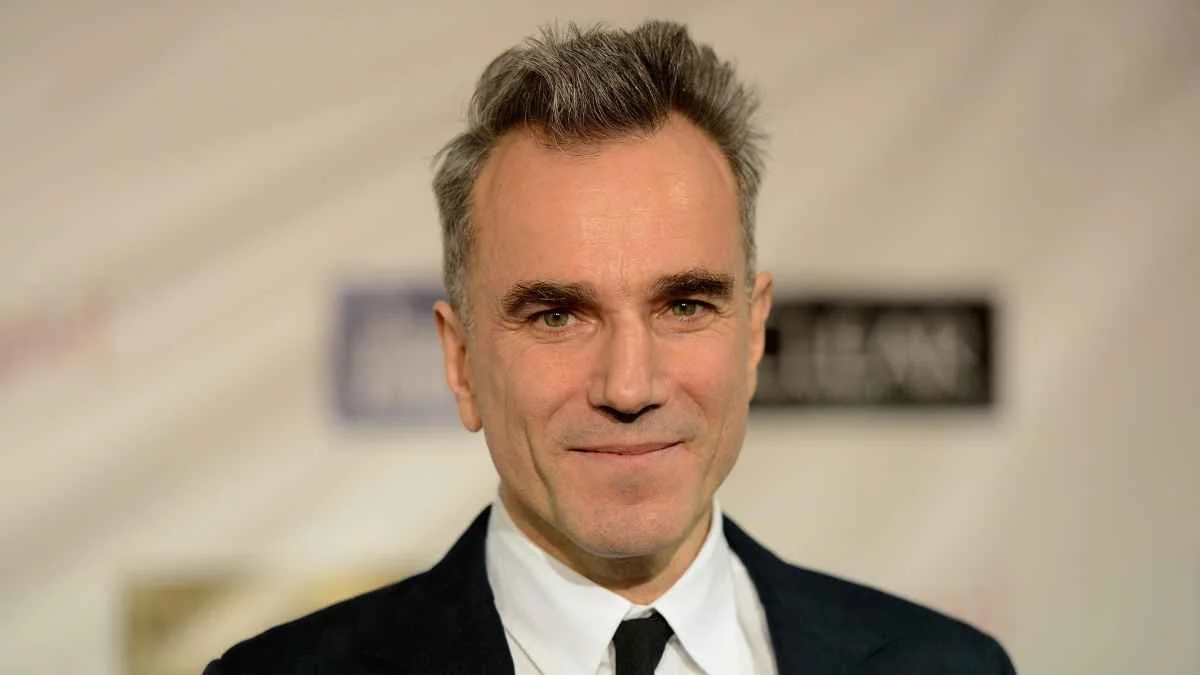Daniel Day-Lewis is in the same group as Steven Soderbergh, Ken Loach, Jack Nicholson, and other Hollywood immortals, who subsequently made this stupendous show-business no-no suspension from being an actor. This legendary three-time Oscar winner has retired at only 60 – more μάρειθε than any other actor in the history of these bios, he is known for the film in which Paul Thomas Anderson is the director – fashion drama Phantom Thread describes his last film.
In a similar fashion and with that aspiration, we have to wish that Sir Daniel would have the itch to take in the hand in which he grips that carriage clock where it was plated, set aside the golf sticks, and get on with his work once again.
The man with the most awards for best actor, it has been reported, has decided to call it a day. Well, let’s wait for that, never dream a dream so big, and hope that he goes back on that decision one screen acting career that ends up getting better than this one.
Daniel Day-Lewis
Naturally, most performers do not have the alternative of quitting acting. Others like Sean Connery and Gene Hackman choose to silenciously retire towards the end of their careers. For some time now, it was assumed that Hugh Grant was effectively retired. But no, he still does movies – and great ones at that. But quite several actresses become active even in ripe old age, as they run out of money, or simply because they want to do it. They accept roles in films, not because they want to, but because they have to.
However, Daniel Day-Lewis has had the luxury for some time to only agree to work which interests him, and to bask in the enjoyment of an artificial inter-role mini-retirement. At the moment he also enjoys the reveries of being informed of his working career’s obituary, which unlike real life will have an underlying tone of regretful skepticism, and I cannot believe it, the proper termination cannot be so simple. Quite differently, I suppose, one can.

He ceased theatrical activities, considering which, I suppose again, an emotional upheaval was involved. This happened in 1989 when he simply reached the end of the line as was feeling last playing Hamlet inside the National Theatre in London with some sort of a vision of his deceased father. That was the last moment he stepped foot on a stage. It was not like she enjoyed pension schemes but an inner sense of calmness took over.
Daniel Day-Lewis ends retirement
When it comes to screen acting careers, no one approaches Daniel Day-Lewis’s greatness, and two decades down the line one looks back at his – and despite that much discussed and giggled at the method-acting approach – his roles look like old-fashioned portrait galleries of complexly dressed statuesque figures one would see in the works of the great stage directors like Olivier or Welles. One has always been such a skilled craftsperson in nearly everything he does including the fact that before really venturing into the world of acting, he sought (unsuccessfully it would turn out) the degree of a cabinet maker apprentice and in the late 1990s took an apprenticeship with a master cobbler, Stefano Bemer, this time as a shoemaker.
About My Left Foot in 1989, the picture that earned him the award of the most outstanding actor for the very first time, he doggedly recreated the attributes of writer Christy Brown and painter, who was born with a dysfunction that allowed him to move only his left foot. It was one of those SEND this over dramatics ones with his performance, 20 years later the same thing might probably bring a row over the unfair casting of a disabled actor.

He followed that with his second Oscar due to his amazing role in Paul Thomas Anderson’s There Will Be Blood, this time playing an oil billionaire, Daniel Plainview who is angry, mixed up, and miserable. Still like Olivier, Daniel Day-Lewis, at that advanced point, had breathed the voice (though at what stage of the process we cannot ascertain). It was a signor Scots-Irish-American—with mannerisms that reminded one of John Huston. The whole architecture of the character burst alive and his eyes were on fire like burning coals, filled with terror and rage that were just.
Paul Giamatti
And what’s more Julio’s last opus was for Paul Giamatti’s common portrayal of A History of Violence as an Amish fiddler in Colm McCarthy’s staying with the topic Oscar-nominated film, Lincoln. It was the focused pale resentful yet desperate Daniel Day-Lewis who tried to turn into a Lincoln for the film, Miss in that it was terrific, A humanistic conceptual Departure abandoning the almost statue-like legendary historical figures. Daniel Day-Lewis discovered an actual Lincoln.
But I like Daniel Day-Lewis in other movies than Lincoln or Christy Brown. I reveled in the raw and curvaceous perversion of Johnny Burfoot, a gay ex-fascist street-fighter punk from My Beautiful Laundrette (1985) which went to the screens under the hand of Stephen Frears and the script of Hanif Kureishi. Berenson also portrayed a rather different character that same year, her not-so-elegant voice and pedantic posture, a character named Cecil Vyse in the Merchant/Ivory film adaptation of EM Forster’s A Room With a View. A devilishly handsome Newland Archer who reminisces his younger years with a sigh, a character played by William Hurt best describes that picture. He exuded refinement and delicacy with the poise of a trained ballerina.
Daniel Day-Lewis movie
In assessing Scorsese’s Gangs of New York (2002), Daniel Day-Lewis played a grotesque, rebellious gangster and an entertainer in a circus. His energy was hailed, however, some believed he tended to overact. This lowly view is like objecting to misaligned spangles on a person juggling double-decker buses, scoffing at the author and illustrating his mad energy instead.

My least liked Daniel Day-Lewis movie is also the most often cited one: the appeal of Hawkeye in Michael Mann’s The Last of the Mohicans encouraging with resonance: ‘I will find you!’ Of course, this is a tremendously self-assured, believable portrayal, but, unlike almost any other Daniel Day-Lewis film, it is a tad banal somehow.
He was quite brilliant in Jim Sheridan’s In the Name of the Father (1991), where he portrayed Gerry Conlon who was falsely imprisoned. He also shared some lovely and heart-warming chemistry with Giuseppe, the well-loved but long-gone actor Pete Postlewaite who played his father.
Daniel Day-Lewis’ career was filled with a variety of roles including performing in Rob Marshall’s romantic musical Nine (2009). Turned out that he portrayed the distressed director Guido who is otherwise depicted as a brute with no regard for respect. The speech of Daniel Day-Lewis in the screenplay exhibited his innovativeness most especially in the instance where he orders a doctor to come and treat her wife who is in labor and the embarrassed look the doctor gives to Guido is simply amazing. He was prolific and gave good and quality content in terms of artistry, but his first appearance on stage in Hamlet was an anti-climax.

